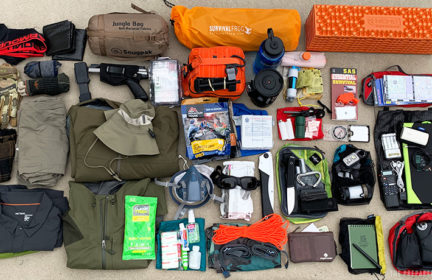Hospital go bag
When both parents started going into the hospital a couple of times in rapid succession, we put together Hospital Go Bags with items needed for comfort, privacy, and entertainment. The document package stayed in our cars as well. We did use the bags thereafter.
Hospital Go Bag
Leave personal medications and tobacco products at home. Clean out wallet of credit cards and large amounts of cash. Leave jewelry at home. Hospital has no responsibility for stolen valuables. Policies may govern if you can have electronic devices. If you’re uncertain whether to bring a valuable, ask yourself if you’re willing to lose it. If not, keep it at home. With a small amount of money you can buy newspapers, etc.
If something goes wrong with a day surgery, you may be admitted to the hospital for a time. It’s best to plan for that contingency.
Inventory of the bag contents. Date when last inventoried.
Gov’t issued photo ID and insurance card
List of emergency contacts (phone numbers, hard copy), including primary physician, ride home, clergy
Healthcare documents such as personal health history (with allergies, conditions, medications [name, dose, administration times], doctors, immunizations, history of major illness and surgeries), dietary restrictions, Advance Health Care Directive (meds and procedures you either will accept or not accept), Power of Attorney for Healthcare, General limited or durable Power of Attorney, Living Will, optional Do Not Resuscitate (Allow Natural Death) order. Recent reports, x-rays. Bring documents in a single bag or envelop.
Crutches, walker, cane, other assistive devices for use after surgery.
Mobile phone and wall charger, extension cord. Hospitals may have a policy if electronic equipment interferes with patient monitoring equipment. Check before going if possible.
Dental hygiene items (brush, paste, floss)
Personal hygiene items: nail clippers, comb/brush, shampoo, conditioner, skin lotion, deodorant, lip balm, shower shoes (flip flops). Shaving kit. Feminine hygiene products.
Special needs products such as denture cream.
Eyecare (contact lens kit, glasses, cleaning cloth). Glasses may be easier to deal with than contacts.
Eye mask, ear plugs. Contrary to what you believe, you are not in the hospital to get rest. Staff may awaken you at such hours that it is difficult to sleep. Be prepared to complain. They can do better.
Full change of clothes, a couple of changes of underwear
Light robe? Non-slip slippers
Entertainment of some kind, cards, puzzle books, book/magazine to read, religious book
Notebook, pen. Note details of any incident, any verbal instructions that are not documented. Journal?
Photos of family, friends.
For kids, favorite (stuffed?) toy
Any other staff-recommended items for a planned hospital admission.
-
Comments (3)
-
